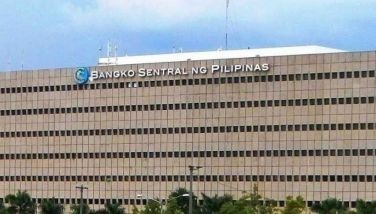Factory output moves up in November despite inflation woes

MANILA, Philippines — Local factory output continued its ascent in November on the back of resurgent demand, but employment numbers slid down as resignations rose.
A survey of around 400 manufacturers in the country found that the Philippines’ Purchasing Managers’ Index (PMI), a gauge of manufacturing output, inched up to 52.7 in November from 52.6 in October, S&P Global said in a report on Thursday.
The latest reading settled above the 50-benchmark separating growth from contraction. S&P explained that the improvement in the November PMI “signaled a modest rate of growth” although this was a slower improvement.
“Growth across the Philippines manufacturing sector entered its tenth successive month, with modest expansions in operating conditions seen since September. The improvement across the sector primarily stemmed from greater demand conditions which drove higher sales and output,” Maryam Baluch, economist at S&P Global, said in a commentary.
Baluch noted that although the sector grew significantly this year, with a bullish outlook in the next 12 months, high inflation continued to pose on problems on businesses. Specifically, she noted the impact of rising interest rates, adding that the prospect of more interest rate hikes “could impact customer spending.”
The latest PMI report showed that while demand was recovering, as factory orders grew for the third straight month, foreign orders remain depressed. That meant that domestic demand drove most of the growth in orders.
As it is, the Bangko Sentral ng Pilipinas said inflation is supposed to slow down in the coming months. The prices of consumer goods and services rose to a 14-year high of 7.7% year-on-year in October amid expensive fuel prices, supply-chain disruptions and a weak peso.
Domini Velasquez, chief economist at China Banking Corp., said the expansion indicated the sector’s recovery despite persistent headwinds.
“This is consistent with recent gross domestic product figures, which surprised on the upside. Until holiday season, December and January, we expect demand conditions to improve given first full face-to-face celebrations,” she said in a Viber message.
Resignations
The latest PMI survey showed firms’ buying behavior improved in the third straight month, as purchasing managers anticipate greater demand in the coming months. Despite this, Velasquez noted that rising inflation would likely suppress consumer and business sentiment, much like a trend she observed in countries in Asia.
On the other hand, local factories observed its workforce numbers dip in the previous month on account of resignations. For Nicholas Antonio Mapa, senior economist at ING Bank in Manila, this reflected the sluggish recovery momentum of the local jobs market.
“Labor trends however were less upbeat as seasonally adjusted the labor index slipped, snapping a series of improvement. This shows that the labor market recovery is still a ways before we get back to pre-Covid levels,” he said in a Viber message.
- Latest
- Trending




























